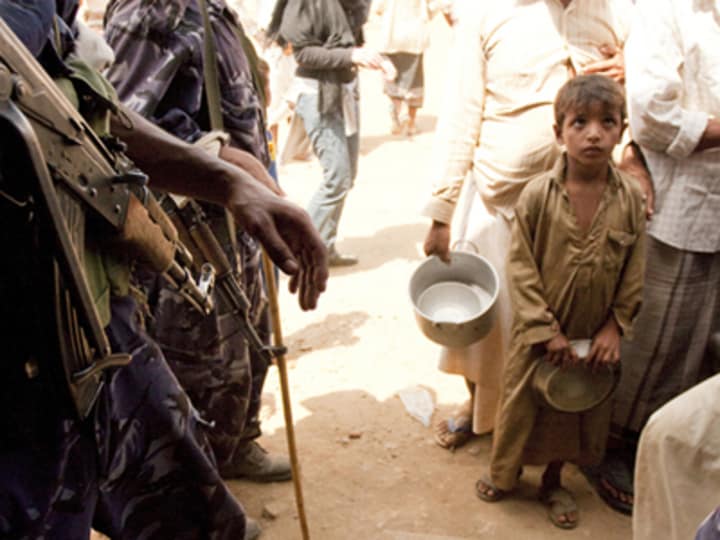
Food insecurity contributes to instability anywhere, but in the Arab world it is truly the main driver of conflicts and a major threat to a peaceful transition to widespread democracy, according to a three-year study conducted by the International Food Policy Research Institute.
Scholars see the correlation as a feature of the so-called “Arab exceptionalism” — but what are the implications for governments and development organizations?
At a recent workshop held at the International Fund for Agricultural Development’s headquarters in Rome, several experts agreed that what makes the Arab world different from the rest of the world when it comes to food security — and which makes it especially challenging for aid implementers — is a mix of natural and social factors: Water scarcity, very high youth unemployment and the coexistence of various social environments with their own customs.
That’s why programs should be designed taking into account those unique factors, according to Khalida Bouzar, IFAD’s director for the Middle East, North Africa, Europe and Central Asia.
“We need to take into consideration activities that alleviate pressure on water use, using [it] in a more efficient manner, using new technologies,” she told Devex. “[We need] to integrate young people and [the] different societies, involving all the local population.”
No solution fits all
When it comes to food security, another expert stressed that there is no silver bullet in the Arab world, where some nations are mostly desert, others have fertile soil around oasis and river basins, and some even have a long fishing tradition.
“What can be applied to Sudan can’t be applied to Egypt, Somalia or Yemen,” Khaled El-Taweel, first secretary at the Egyptian embassy in Rome, told Devex.
El-Taweel however does see a potential for building partnerships between countries, despite most of them having little in common outside of Islam, and for instance highlighted how his country is not just receiving aid but also providing technical assistance on agriculture development to other (poorer) African nations.
“We have [had] some successful cases with Japan in some African countries [providing the funds] and Egypt the training and the technical assistance,” he said, adding that the strategy could be replicated in other Arab countries.
What went wrong?
In the past, the international development community has tried in vain to solve the problem of food insecurity in the Arab world, channeling huge flows of aid funds but obtaining scant long-term results.
What no one seems to know for sure is why these efforts have failed.
“I cannot tell you why aid has not been … impactful, but what I can say is that aid has been done [in a] punctual manner to respond to crises, while our work is about sustainable development, about ownership of the most marginalized countries,” noted Bouzard.
Ownership is a relatively new concept, and probably in the past the idea of sustainability wasn’t stressed enough because donors focused on responding to emergencies and barely did any work in marginalized (but not conflict- or famine-affected) areas.
The issue can’t just be a problem of aid policies gone wrong, pointed out El-Taweel.
“What could be more important than financial assistance is the reform of the whole agricultural system,” he said, putting as an example the subsidies paid to farmers in the European Union.
Read more development aid news online, and subscribe to The Development Newswire to receive top international development headlines from the world’s leading donors, news sources and opinion leaders — emailed to you FREE every business day.



